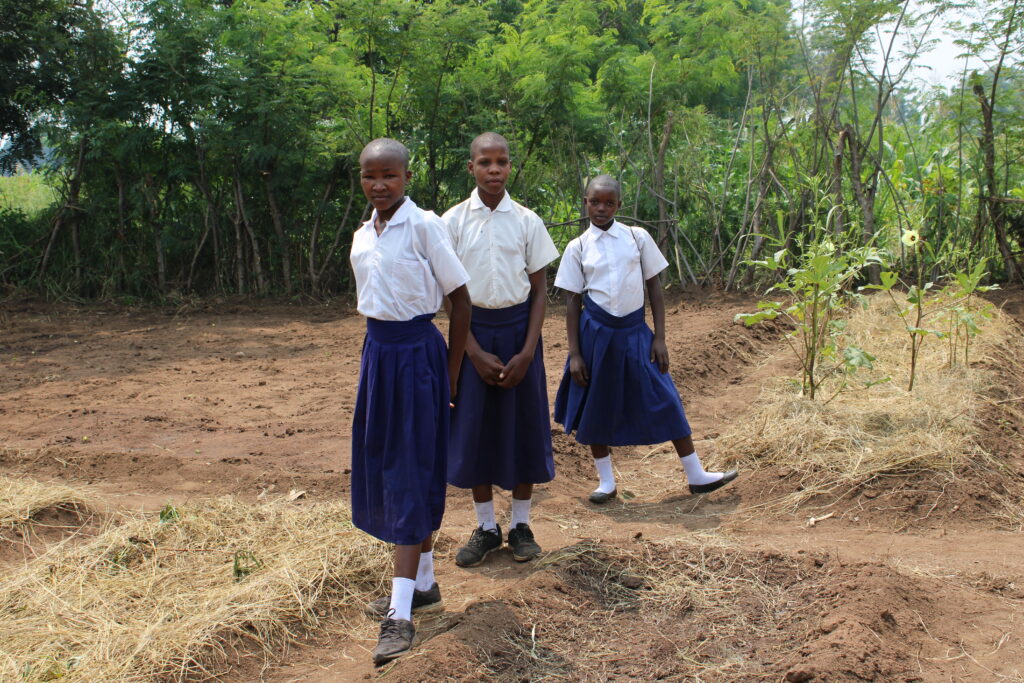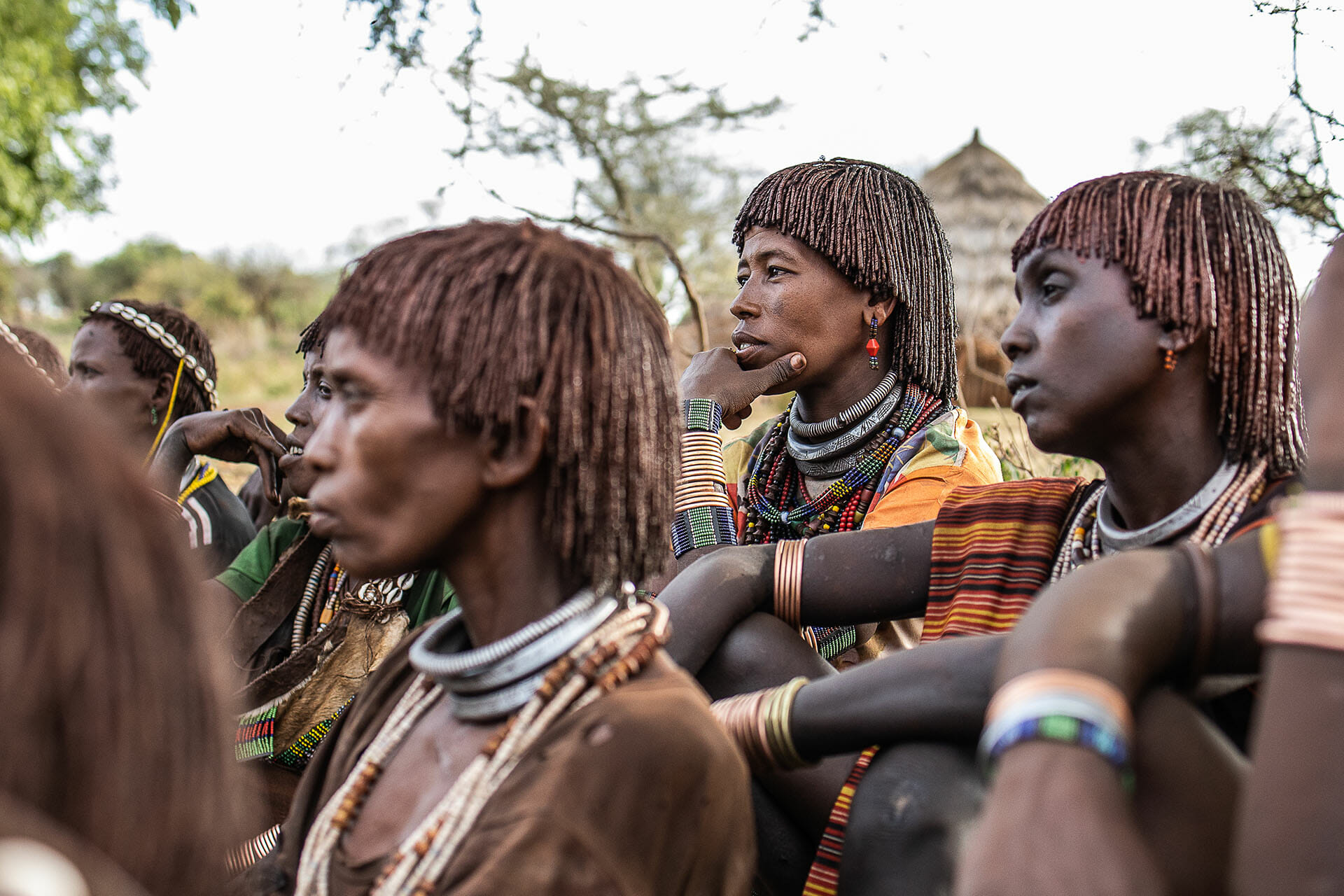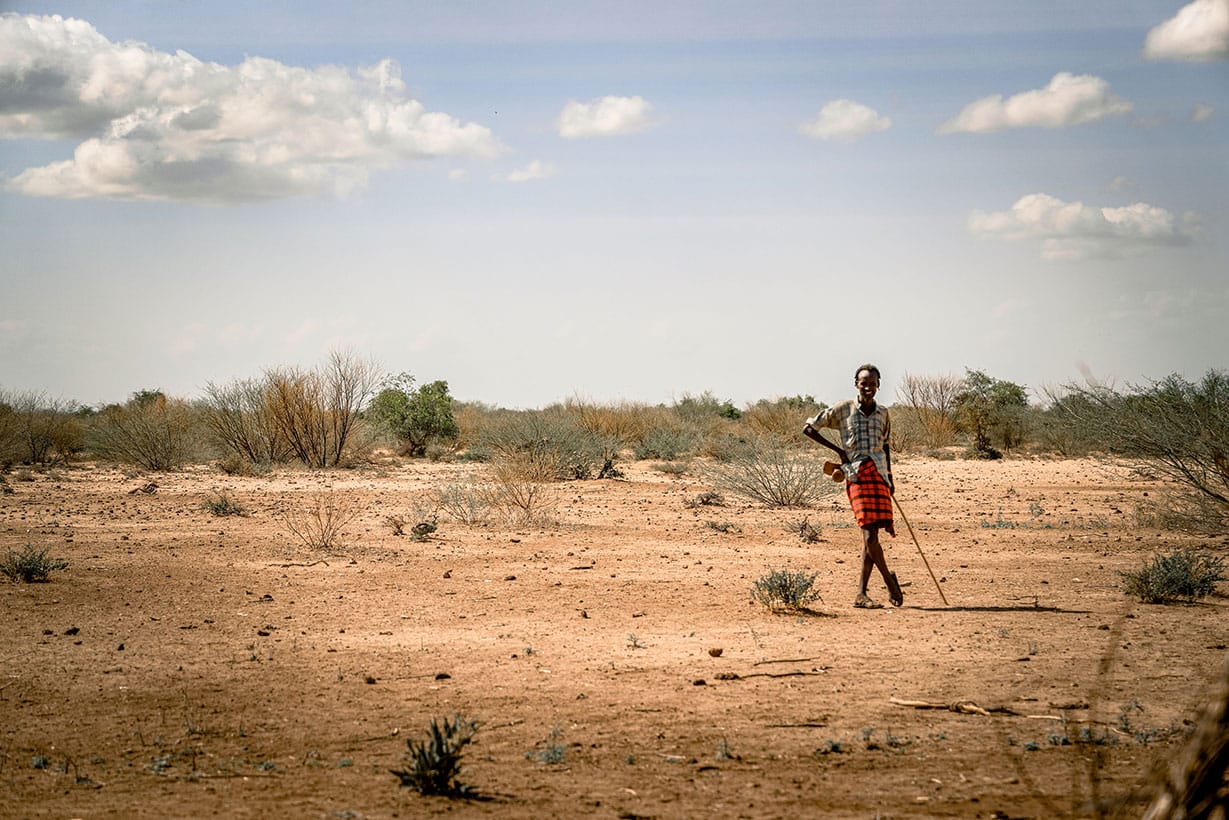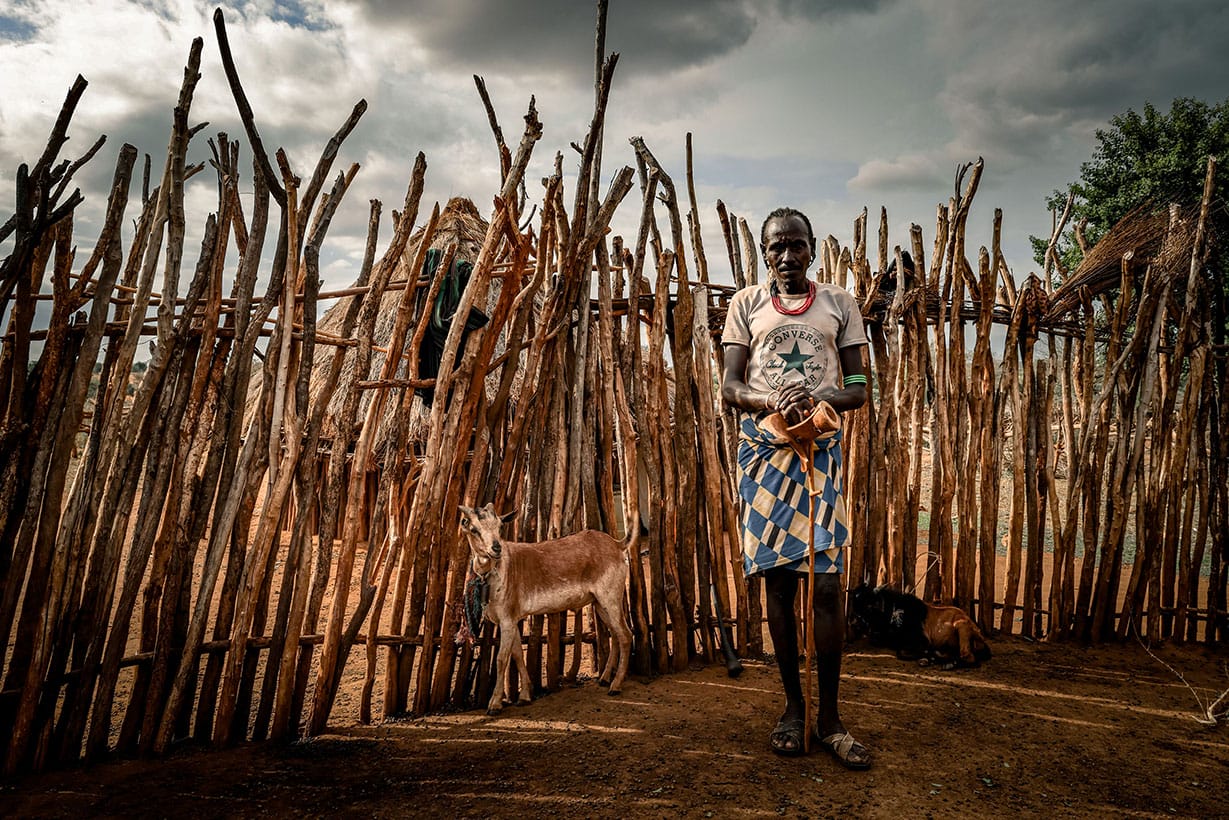Since 2005, Global Communities (formerly PCI) has built a strong reputation in Ethiopia for community-based, integrated programming to build resilience in the face of climate and conflict-related shocks.
Ethiopia has been facing a greater frequency and intensity of disasters due to long-term environmental degradation and shifting global weather patterns, which are further exacerbated by climate change. The 2017 drought produced the worst food crisis in the country in 30 years. With no crops or rangeland to feed either themselves or their livestock, as many as 18 million people were at risk of hunger and disease. For the country’s pastoralists, who migrate their animal herds in search of fresh pasture and water, climate change has upended normal pasture growth patterns and led to substantially increased costs of scouting for pasture and supplemental feed when no pasture can be found. Hundreds of thousands of livestock have died from lack of food and water, leaving communities food insecure, malnourished and vulnerable.
With experience working in six of the country’s nine regions and two administrative cities, a significant presence in vulnerable lowland regions, and strong programmatic expertise in resilience, sustainable development, health, gender equity and social inclusion, Global Communities is uniquely positioned to help communities address these ongoing and emerging crises.
Our innovative program platforms such as the AfriScout app, which combines satellite data and mobile technology to help pastoralists find pasture and water, and the Women Empowered social and economic empowerment model, are also leveraged across programs to meet these challenges. These innovative approaches are carefully integrated with customary institutions and proven grassroots approaches, leveraging indigenous knowledge and traditions. Throughout Ethiopia, we are dedicated to partnering with local governments and communities to manage uncertainties while addressing root causes of their hazards.
Building Community Resilience in Pastoral Lowlands
With funding from the U.S. Agency for International Development (USAID) in Ethiopia, Global Communities (formerly PCI) has embarked on a five-year initiative to improve resilience to withstand and recover from climate and conflict-related shocks in some of Ethiopia’s most vulnerable pastoral regions. Through the Resilience In Pastoral Areas (RiPA) project, Global Communities, in collaboration with implementing partners GOAL and iDE, is addressing many of the root causes of vulnerability for pastoral families, such as poor livestock and crop productivity, limited access to markets, poor nutrition and limited options for livelihood diversification. Through RiPA, Global Communities is building community-managed disaster risk management capacity, improving pastoralists’ ability to locate green pastures to sustain their herds through the AfriScout app, increasing access to livelihood opportunities for individuals transitioning out of pastoralism (particularly women and young people), empowering young women and mothers through Women Empowered social and economic empowerment groups, engaging the private sector to improve crop and livestock production and marketing, and improving health and nutrition outcomes for women and children through proven behavior change strategies.
10,000
registered AfriScout app users across Kenya, Ethiopia and Tanzania
4,500,000
hectares of rangeland digitized for use in the AfriScout app across 9 rangelands
$30,000+
U.S. dollars saved by 281 women in Women Empowered groups
62 kebele
Level Disaster Risk Management committees trained and taking steps towards more robust self-reliance (each kebele is around 20 smaller villages)
Recent Programs
Building Resilience to Climate-Related Shocks
From 2014 to 2018, Global Communities’ USAID-funded project in Bale Zone, Oromia, mobilized communities to build their long-term resilience to climate change and related shocks. Among other notable achievements, Project “REVIVE” regenerated over 18,000 hectares of land to protect natural resources and reduced by 60 percent the amount of time women and girls spend fetching water through the rehabilitation and construction of 84 water systems, which are benefiting over 83,000 new users. (closed in 2018)
Our Work in Ethiopia
Global Health
Combating Disease, Improving Nutrition, and Ensuring Healthy Mothers, Children and Adolescents
Resources
Capacity Materials
Women Empowered: Championing Innovative Approaches to Savings Group Programming
Global Communities’ Women Empowered (WE) initiative is a global savings group program designed to promote financial inclusion and the social, economic, and political empowerment of women. In WE groups, 15-25 members come together to save money, access credit, learn together, and invest in income-generating activities. Developed in 2008 and refined over the past 15 years,…
Capacity Materials
Advancing Maternal, Newborn and Child Health and Nutrition (MNCHN)
Global Communities has worked to save mothers’ and children’s lives and improve their health and well-being since 1961. We implement integrated maternal, newborn, child health and nutrition (MNCHN) programs at the individual, family, community and institutional levels. On the supply side, we partner with governments, civil society, and frontline health workers to strengthen health systems,…
Research & Publications
Referral systems for preterm, low birth weight, and sick newborns in Ethiopia: a qualitative assessment
Teklu, Alula M., Litch, James A., et al. Referral systems for preterm, low birth weight, and sick newborns in Ethiopia: a qualitative assessment. BMC Pediatrics, Aug 2020 20:409. https://doi.org/10.1186/s12887-020-02311-6 A responsive and well-functioning newborn referral system is a cornerstone to the continuum of child health care; however, health system and client-related barriers negatively impact the…
NEWS
Latest stories from the blog

From Commitment to Care: Sustaining Integrated Health and Family Planning Services in Burkina Faso
By Idrissa Derra, Community Health Technical Specialist, INSPiRE Two years ago, the CSPS Urbain de Pô health center in southern Burkina Faso began delivering integrated …
Read More
Menstrual Health Is Everyone’s Responsibility — A Global Perspective on Girls’ Education
By Leonel Arguello, Director, Integrated School Feeding Programs, Global Communities Six years ago, I had the opportunity to visit primary schools in rural Tanzania where …
Read More
World Health Worker Week: A Global Call to Invest in Health Workers
By Abbey Savin Each year during the first week of April, the Frontline Health Workers Coalition – hosted by IntraHealth International, a Global Communities Partner …
Read More
Margaret Odera: Championing Community Health Workers in Kenya
Health workers are the heart of global health security, playing a crucial role in preventing and responding to pandemics, as well as addressing growing threats …
Read More


